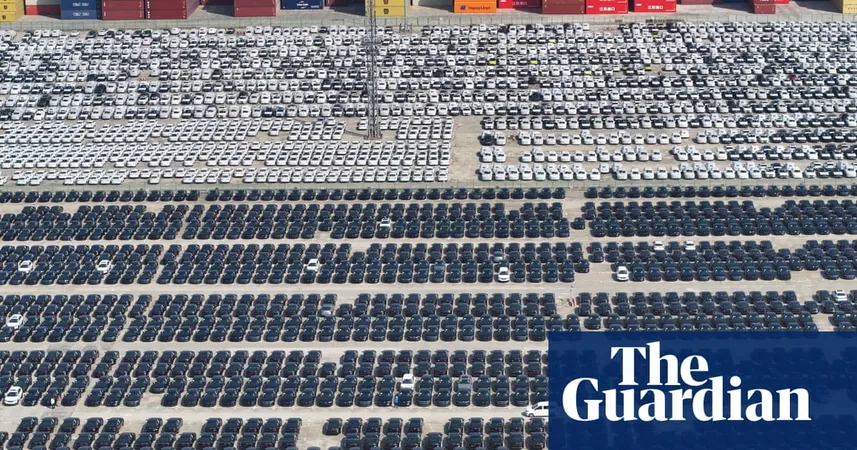
China's Cautious Optimism Amid US Tariff Truce
2025-05-13
Author: Liam
In a significant development, China has cautiously welcomed a temporary halt in the ongoing tariff skirmish with the United States. Following two days of intense negotiations in Geneva, both nations have agreed to a 90-day pause, easing tariffs that have strained their economic relationship.
Under this new accord, US tariffs on Chinese imports will drop drastically from a staggering 145% to 30%. Meanwhile, China's retaliatory tariffs on US goods will see a reduction from 125% to just 10%. Notably, China has also lifted a ban preventing airlines from receiving Boeing aircraft, signaling a potential thaw in the high-stakes trade war.
Despite the optimism over the ceasefire, tensions linger. Chinese President Xi Jinping reiterated his stance, accusing the US of 'bullying' and asserting that trade wars yield no victors, only chaos. In a meeting with Latin American leaders, he emphasized that egoistic tactics would only lead to isolation for the US.
Meanwhile, China's Foreign Ministry has expressed frustration over what they call 'unreasonable' tariffs, insisting that the US ceases shifting blame for issues like the fentanyl crisis onto China. The uneven tariff rates are partly due to ongoing allegations from the US regarding China's handling of chemical exports linked to illegal drugs.
Chinese officials maintain their rejection of all tariffs, expressing a desire to avoid a catastrophic trade battle, yet they assert their readiness to 'fight to the end' if necessary. In a published editorial, state-run media described the discussions as a 'crucial step' towards resolving bilateral differences and welcomed the US's newfound willingness to engage.
The impact of the tariff dispute has been severe, putting millions of Chinese jobs at risk and hampering exports. As China braces for the next three months, commerce and finance officials have met with trade representatives to strategize and weather the potential turmoil.
Many in the Chinese business community are tentatively optimistic. Bao, an assistant manager at a foreign trade company in Ningbo, reported that about 30% of their exports are directed to the US and noted a potential surge in shipments as businesses prepare to capitalize on the temporary reprieve.
Amid growing unease over the road ahead, discussions on Chinese social media reveal mixed sentiments. While some commentators celebrate what they perceive as a victory for China, others are less convinced, likening the pause to merely prolonging the inevitable fallout.
As the world watches, the next 90 days will be pivotal in determining whether this tariff truce can lead to a more stable and constructive US-China relationship—or if tensions will soon flare up again.









 Brasil (PT)
Brasil (PT)
 Canada (EN)
Canada (EN)
 Chile (ES)
Chile (ES)
 Česko (CS)
Česko (CS)
 대한민국 (KO)
대한민국 (KO)
 España (ES)
España (ES)
 France (FR)
France (FR)
 Hong Kong (EN)
Hong Kong (EN)
 Italia (IT)
Italia (IT)
 日本 (JA)
日本 (JA)
 Magyarország (HU)
Magyarország (HU)
 Norge (NO)
Norge (NO)
 Polska (PL)
Polska (PL)
 Schweiz (DE)
Schweiz (DE)
 Singapore (EN)
Singapore (EN)
 Sverige (SV)
Sverige (SV)
 Suomi (FI)
Suomi (FI)
 Türkiye (TR)
Türkiye (TR)
 الإمارات العربية المتحدة (AR)
الإمارات العربية المتحدة (AR)